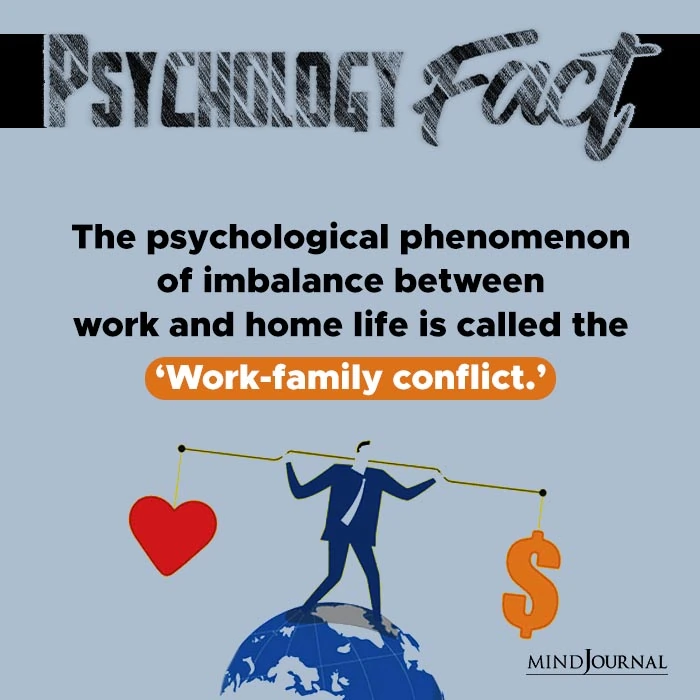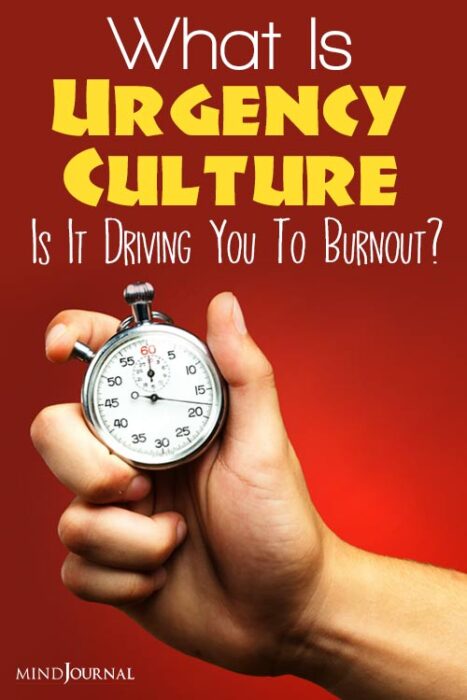Do you ever feel like you’re constantly rushing from one thing to the next, without any time to catch your breath? If so, you’re not alone. Urgency culture has become a defining feature of modern life, and it can have both positive and negative effects on our lives.
What is urgency culture?
Urgency culture is a phenomenon that has emerged in recent decades, driven by technological innovation and the rise of the internet. It is characterized by an emphasis on speed, efficiency, and constant productivity, and a belief that everything should be available to us instantly.
It typically refers to a work environment where employees are expected to respond quickly to tasks and prioritize work over personal time.
Now that we know what is urgency culture, let’s explore its positive and negative aspects.
Related: 10 Alarming Signs You Are Stuck In A Toxic Workplace
Positive effects of urgency culture
A culture of urgency can be motivating and can help us achieve our goals more quickly and efficiently. It can enable us to respond effectively to changing circumstances, and can increase our productivity and enable us to achieve our goals more quickly.
Urgency culture can have several positive effects, including:
1. Increased productivity
It can motivate people to work more efficiently and effectively, which can lead to increased productivity. By focusing on completing tasks quickly and efficiently, people can accomplish more in less time.
2. Adaptability
It can help people adapt quickly to changing circumstances. In a fast-paced environment, people must be able to pivot quickly and adjust their plans as needed.
3. Innovation
According to urgency culture psychology, this phenomenon can encourage innovation and creativity. When people are under pressure to come up with solutions quickly, they may be more likely to think outside the box and come up with new and innovative ideas.
4. Improved decision-making
In urgent situations, people often have to make decisions quickly. This can help people develop their decision-making skills and become more decisive in general.
5. Increased sense of accomplishment
When people accomplish tasks quickly and efficiently, it can give them a sense of accomplishment and satisfaction. This can motivate them to continue working hard and striving for success.
Related: 10 Proven Ways to Balance Work and Family Life

Negative effects of urgency culture
Urgency culture can also have several negative effects, including:
1. Burnout
It can lead to burnout, as people feel the pressure to work long hours and be constantly productive by neglecting our personal lives, and feeling increasingly stressed and overwhelmed.
This can have negative effects on people’s physical and mental health, causing exhaustion, stress, and other health problems.
2. Lack of focus
When people are constantly bombarded with demands and information, it can be difficult to focus on any one task for an extended period of time. This can lead to decreased productivity and an increased likelihood of making mistakes.
3. Reduced creativity
Urgency culture psychology states that while it can encourage innovation in some cases, it can also stifle creativity. When people are under pressure to produce results quickly, they may be less likely to take risks or experiment with new ideas.
4. Short-term thinking
It can encourage a focus on short-term results, rather than long-term goals. This can lead to a lack of strategic planning and a failure to consider the potential consequences of decisions made in the heat of the moment.
5. Deterioration of personal relationships
It can lead people to neglect their personal lives and relationships, as they feel pressure to be constantly working and productive. This can lead to a deterioration of personal connections and a decreased sense of satisfaction and well-being.
Related: 13 Unhealthy Habits That Reveal A Workaholic
How to deal with urgency culture
Coping with urgency culture can be challenging, but there are several strategies that can help. Here are some tips for managing urgency culture:
1. Prioritize your time and energy
It’s important to recognize that our time and energy are finite resources. Instead of trying to respond to every email or notification immediately, prioritize tasks based on their importance and urgency.
Identify your most important goals for the day or week and focus on those first. This is especially important for coping with urgency culture in relationships as it allows you to find work-life balance.
2. Practice mindfulness
Mindfulness is a powerful tool for managing stress and improving focus. Taking a few minutes each day to meditate or practice deep breathing can help you stay centered and focused, even in the face of urgency culture.
Try to focus on the present moment and avoid getting caught up in distractions or worries about the future.

3. Set boundaries
Setting clear boundaries with yourself and others can help you protect your time and energy. Learn to say no when necessary, and avoid taking on more tasks than you can handle.
Set aside specific times each day to check your messages and respond to emails, and avoid checking them outside of those times.
Related: Taking Control Of Your Workday: 13 Tips For Setting Boundaries At Work
4. Take breaks
Taking regular breaks throughout the day can help you recharge and stay focused. Even a short walk outside or a few minutes of stretching can make a big difference.
Make sure to take breaks throughout the day to avoid becoming overwhelmed or burned out.
5. Create a supportive work environment
Organizations can also play a role in creating a healthier and more sustainable work environment. Employers can promote work-life balance, offer flexible schedules, and provide resources for stress management and mental health support.
By creating a supportive work environment, employees can better cope with the demands of urgency culture.
6. Recognize when urgency culture is not the best approach
Finally, it’s important to recognize that urgency culture is not always the best approach. In situations that require careful reflection, creative thinking, or long-term planning, a slower, more deliberate approach may be more effective.
Learn to recognize when urgency culture is not the best approach and adjust your approach accordingly.
By implementing these strategies, you can better cope with the demands of urgency culture in relationships and in other aspects of your life. It can help you achieve your goals without sacrificing your health or wellbeing. With these tools, you can navigate urgency culture and thrive in a fast-paced world.
Takeaway
Urgency culture is an unavoidable part of modern life, and it presents both challenges and opportunities. To navigate this fast-paced world successfully, we must learn to prioritize our time and energy, practice mindfulness, set boundaries, and create a supportive work environment.
By doing so, we can thrive in the face of urgency culture, and achieve our goals without sacrificing our health or wellbeing.
Related: Quiet Quitting: A Mental Health Movement Or An Anti-Work Movement?









Leave a Reply
You must be logged in to post a comment.